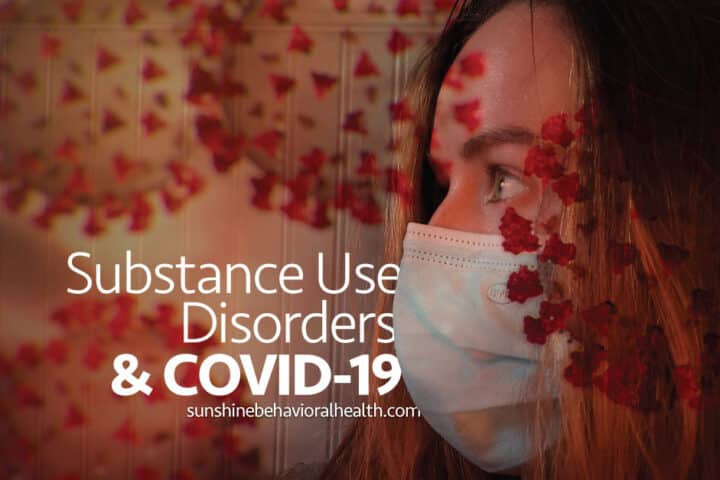
Substance Use Disorders and COVID-19: Staying Connected, Safe, and Healthy
It’s hard to find areas in our lives that the COVID-19 hasn’t touched. Many of us lived, are living, or might be living under orders that have reduced the size of social gatherings or have encouraged us to stay home and not gather in the first place.
Public gathering and stay-at-home orders are efforts to slow the spread of the virus. The orders limit our contact with others. They make sense medically because if we don’t physically gather, it’s harder to give or get COVID-19.
But while physically distancing may make sense from a public health perspective, it can be difficult from an emotional one. People are social creatures. Isolating from other people can be harmful.
Loneliness and health conditions
According to the National Institute on Aging, researchers have found connections among loneliness and isolation and several mental and physical conditions, including:
- Heart disease
- High blood pressure
- Compromised immune systems
- Depression
- Anxiety
- Cognitive problems
- Alzheimer’s disease
- Obesity
To deal with some of these mental and physical conditions, some people have started using drugs and alcohol, or they might be using more of these substances then they did before the pandemic.
Some people may be reluctant to seek help for this substance abuse. Others may be reluctant to continue participating in treatment programs that they started before the pandemic because they’re afraid of catching COVID-19.
Substance use disorders (SUDs) and COVID-19
But treatment is critical, because facing and treating a substance use disorder (SUD) at a licensed rehabilitation facility can minimize the damage that drugs and alcohol can do. Did you know that such treatment may also reduce your risks of contracting COVID-19 and experiencing more severe virus-related outcomes?
“[T]hose with a recent SUD diagnosis on record were more likely than those without to develop COVID-19…. Individuals with an SUD diagnosis were also more likely to experience worse COVID-19 outcomes (hospitalization, death), than people without an SUD,” stated the National Institutes of Health (NIH) in a 2020 study.
Dr. Nora D. Volkow, the director of the NIH’s National Institute on Drug Abuse and a coauthor of the study, says that substance use disorders compromise people’s cardiovascular systems and lungs and leaves them more susceptible to COVID-19. Furthermore, she adds that people who have drug and alcohol addictions might be more marginalized and find it more difficult to access services that could help them.
Such findings underscore the need to seek addiction treatment and stay connected. While we might not be able to meet in person, we can gather online with our families or sobriety groups. We can call or text someone when we’re struggling or check in on others.
Now and always, staying healthy and connected is possible and so important.
Sources
nia.nih.gov – Social Isolation, Loneliness in Older People Pose Health Risks
sunshinebehavioralhealth.com – How to Find the Best Luxury Rehab Center Near You
nih.gov – Substance Use Disorders Linked to COVID-19 Susceptibility
A Message From Our CEO
Medical disclaimer:
Sunshine Behavioral Health strives to help people who are facing substance abuse, addiction, mental health disorders, or a combination of these conditions. It does this by providing compassionate care and evidence-based content that addresses health, treatment, and recovery.
Licensed medical professionals review material we publish on our site. The material is not a substitute for qualified medical diagnoses, treatment, or advice. It should not be used to replace the suggestions of your personal physician or other health care professionals.





